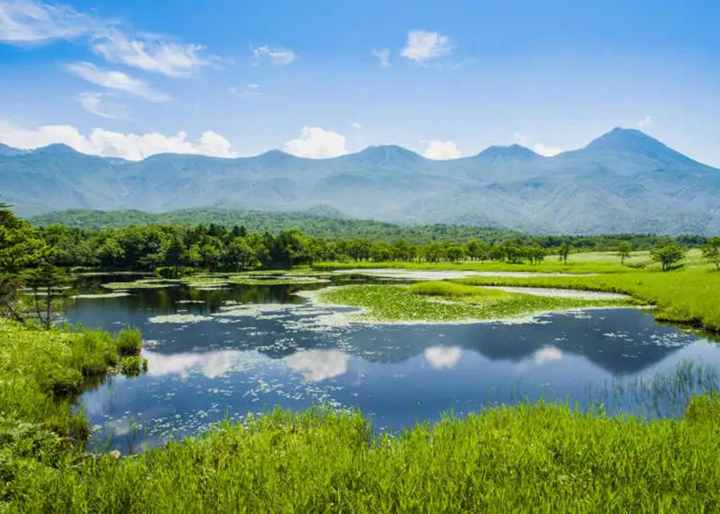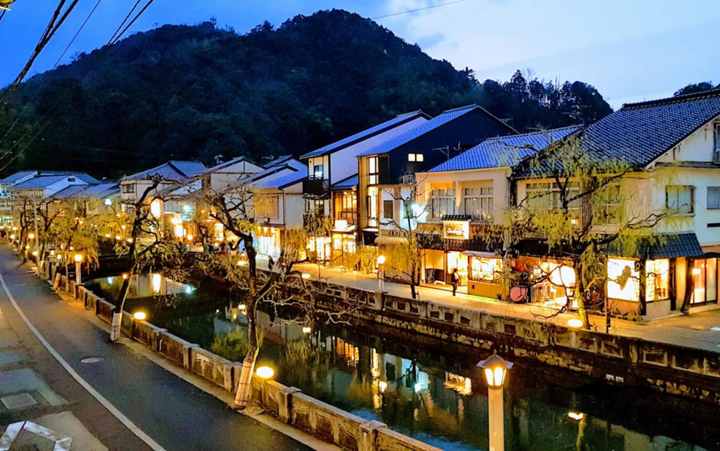JAPAN after the Olympics
Japan's tourism industry was thriving before the pandemic, with 31.8 million visitors in 2019 and a goal of 40 million in 2020. However, the pandemic and delays to the Olympics disrupted these plans. Despite this, Japan is ready to welcome international visitors back and the government remains committed to welcoming 60 million international visitors by 2030.
There will be new sights and accommodation options available to welcome tourists back. The Games also brought improvements to infrastructure, including new train stations and airport expansions. Luxury hotels have also been added in the capital and around the country. These improvements aim to not only serve returning international visitors, but also entice new ones to come.

Tokyo

To experience the Olympics, visit Japan's National Stadium in Tokyo's Shinjuku district near the Meiji Jingu Shrine. The best view of the stadium is from the Shibuya Sky observation deck at the Shibuya Scramble Square building. Other popular attractions include the Tokyo Tower, the Robot Restaurant, Sensoji Temple, the Ghibli Museum, and Tokyo Bay. For a unique experience, visit the sumo stables to see training. Be sure to also check out teamLab Borderless, the world's first digital art museum.
Hotels in Tokyo
Day trips from Tokyo to Nagano

Nagano is known for its off-piste skiing and forested mountain hikes. It was also the host of the 1998 Winter Olympics. Visitors can learn about the city's ninja history by visiting the Togakure Ninpo Museum and Kids Ninja Village. Nagano City is the main access point for visiting the snow monkeys.
To get to Nagano, take the shinkansen, or bullet train, from Tokyo, which takes 1 hr 22 mins.
Where to stay in Nagano?
Kyoto

Kyoto is a must-see destination for travelers to Japan. Known as the cultural capital of Japan, it is home to 17 UNESCO World Heritage Sites, cobbled streets, and numerous Buddhist temples and Shinto shrines. It is also the birthplace of Geisha culture and the Japanese Tea Ceremony.
New or renovated museums, such as the Kyoto City Kyocera Museum of Art and the Fukuda Art Museum in Arashiyama, are scheduled to reopen in time for the Olympics. Kyoto also offers a variety of hotels, from traditional ryokans to luxury accommodations.
To get to Kyoto from Tokyo, take the shinkansen, which takes 2 hrs and 20 mins.
Popular hotels in Kyoto
Day trip from Kyoto to Hiroshima

Hiroshima is easily accessible from Kyoto, with a shinkansen ride taking less than two hours. Despite its tragic past as the site of the 1945 atomic bombing, Hiroshima has moved forward and is now a vibrant city that acknowledges its history.
For first-time visitors, a must-see attraction is the Genbaku Dome, also known as the A-Bomb Dome. The former exhibition hall was left in ruins after the bombing and serves as a permanent reminder of the devastation. A plaque behind the hall marks the spot of Ground Zero. The Genbaku Dome overlooks the Hiroshima Peace Memorial Park, where an annual ceremony is held on August 6th. The park also houses the Hiroshima Peace Memorial Museum. In addition to its historical sites,
Hiroshima has much to offer, including the beautiful Hiroshima Castle and the Shukkeien garden. A short boat ride from the city brings you to Miyajima island and its famous torii gate. The island also offers opportunities for hiking or taking the cable car up Mount Misen for views of the Seto Inland Sea.
Places to stay in Hiroshima
Okinawa

Known as the "Hawaii of Japan," Okinawa is a collection of subtropical islands with beautiful beaches, coral reefs, and excellent diving opportunities. It is also home to the country's first cherry blossoms and the birthplace of karate. A number of new hotels and eco-resorts have opened, as well as the DMM Kariyushi Aquarium.
To get to Okinawa, take a 2.5-3 hr flight from Tokyo. Ferries from Kagoshima also depart three to four times weekly, taking about 25 hrs.
Popular hotels in Okinawa
Hokkaido

Hokkaido, Japan's northernmost island, hosted the race walking and marathon events for the Olympics. It is known for its volcanic lakes and national parks, as well as its rich indigenous culture.
The National Ainu Museum opened in July 2020 to explore the history and culture of the Ainu people. Unkai Terrace offers stunning views of the sea of clouds, and has reopened with an extended platform. Hokkaido is also renowned for its skiing, as Sapporo hosted the Winter Olympics in 1972.
To get to Hokkaido, take a short flight from Tokyo or the bullet train, which takes just over 4 hrs.
Hotels in Hokkaido
Osaka

Osaka, Japan's third largest city, may not be as picturesque as some of its counterparts, but it is a great destination for those who love food and fun. The city's unofficial slogan is "kuidaore," which means "eat until you drop," and it is known for its street food.
Osaka Castle is one of the city's most famous landmarks, and Tennoji Park is home to attractions such as the zoo and the city museum of fine arts. The Shinsekai neighborhood, which was modeled after Paris and Coney Island, is a quirky and colorful area where you can try fugu (blowfish) for dinner.
Another reason to visit Osaka is the recent opening of Super Nintendo World at Universal Studios Japan, where you can ride Yoshi and collect gold coins to help rescue Princess Peach's Golden Mushroom.
The fastest bullet train from Tokyo takes 2.5 hours to reach Osaka.
Where to stay in Osaka
Day trips from Osaka to Wakayama

Wakayama, a quick express train ride from Osaka, is Japan's spiritual heartland with misty forests, mountain trails, hot springs, and lovely beaches. It is also home to some of the best ramen in Japan and the birthplace of Japanese soy sauce. The main attraction is the ancient mountaintop temple complex of Kōya-san, an important center of Shingon Buddhism. Consider staying overnight in a temple for a fully rejuvenating experience. To get to Wakayama, it is one hour by car from Osaka.
Places to stay in Wakayama
Overnight from Osaka to Kinosaki

Consider a trip to Kinosaki Onsen for its beautifully preserved architecture, traditional charm, and wonderful onsens. "Onsen hopping" is a popular activity, so don't be shy and stroll through town visiting the various onsens. When you're done, take in the panoramic view from the observation deck at the Kinosaki Ropeway. To get to Kinosaki Onsen, it is three hours by train from Osaka and 2.5 hours by train from Kyoto.


























